The Invisible Hurdle
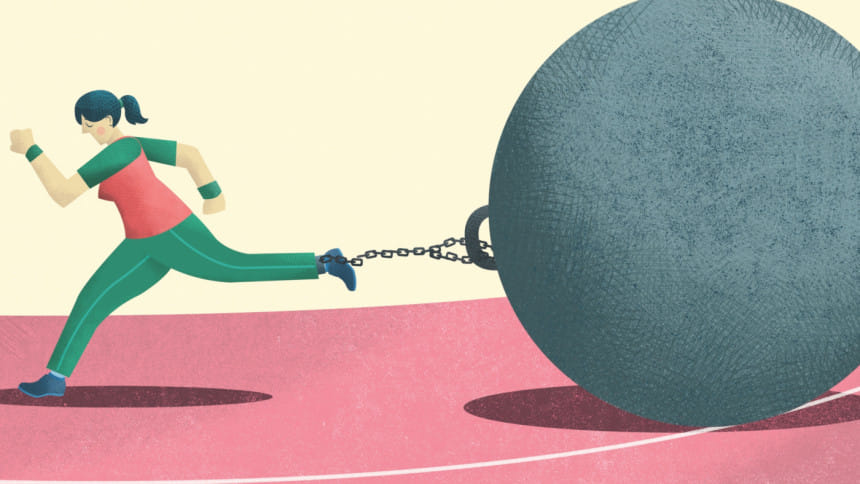
For as long as most can remember, there has always been a significant difference in the number of women that participate in sports, compared to the number of men. "Having fewer players can prove to be a real problem for those of us who want to play. We don't have enough players to practice with and the number of teams is limited. Most of the time, no one wants to work with women's teams because of the small numbers," says Esrat Jahan Nahima, current national table tennis player and student at Jahangirnagar University.
Many may wonder why exactly there is such a big difference between the number of men and women athletes. There are many reasons as to why this happens. One of them being that there isn't much reason to aspire.
"I don't find the same level of aspirations in girls than in boys. All little boys want to grow up to be famous players like Messi or Ronaldo. But for girls, no one is aware of the female sportswomen acting as role models. Because they aren't as accessible or available as male teams. No one wants to take female sports as seriously as male sports, which only acts as a form of discouragement," says Razi Uddin Ahmed, football coach of The Aga Khan School.
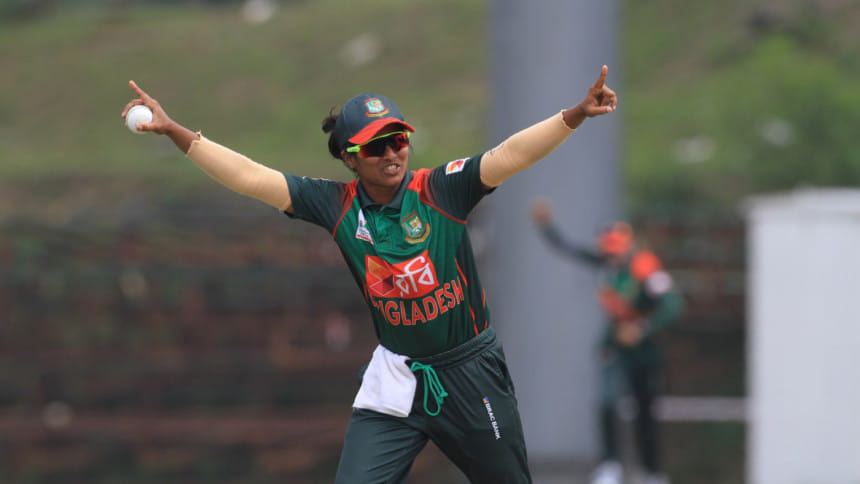
Surprisingly, however, aside from the issue of aspirations, the more popular vote is the lack of support from the families.
Raschida Afzalun Nessa, Senior Sports Reporter at Bangladesh Sangbad Sangstha and former national handball player, says, "The biggest issue in my opinion is the lack of support from the families of young girls." She talks about how everything is increasingly getting more competitive for the youth of today. Putting aside all the sexism girls have to face from strangers, they could use the support from their families.
National-level archer Diya Siddique thanks her lucky stars for a supportive family and can only imagine what it must be like for her fellow athletes who face these issues at home. Hasina Begum Hasi, current volleyball player for Ansar and Md. Nasirullah, coach of the national handball team, agree as they discuss the importance of support from the home in order to encourage the girls to play.
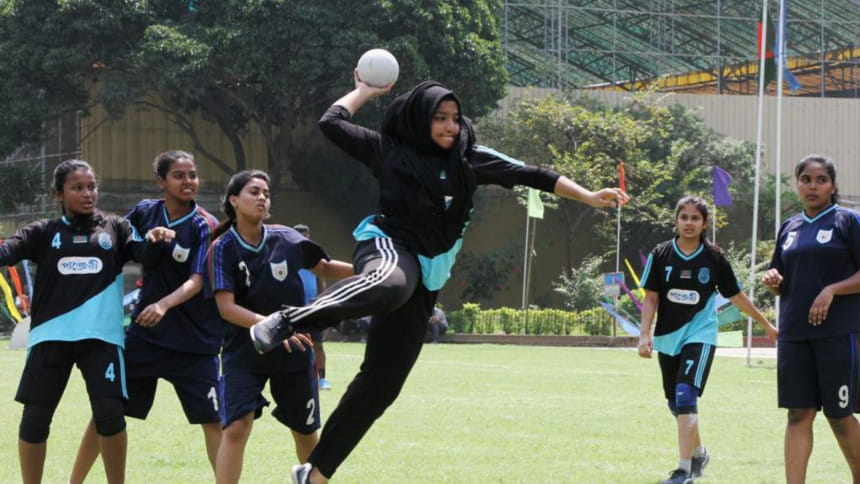
There is also a very obvious difference in the players that do tend to make it nationally. Both boys and girls from schools face issues when being part of the national teams, not for any other reason but the pressure that these students have to face when it comes to education. Board exams and the pressure to apply to universities in foreign lands can be rather burdening to the children. Parents and even teachers from schools themselves often are afraid to support them because there's just that much education that needs to be tended towards.
Nowadays, if you don't have education, you don't have a job. So it is understandable as to why parents act the way they do. However, the case for women has more piled onto it. Along with the pressures of education, a lot of the other ancient social sensibilities that have stuck make it very difficult for girls.
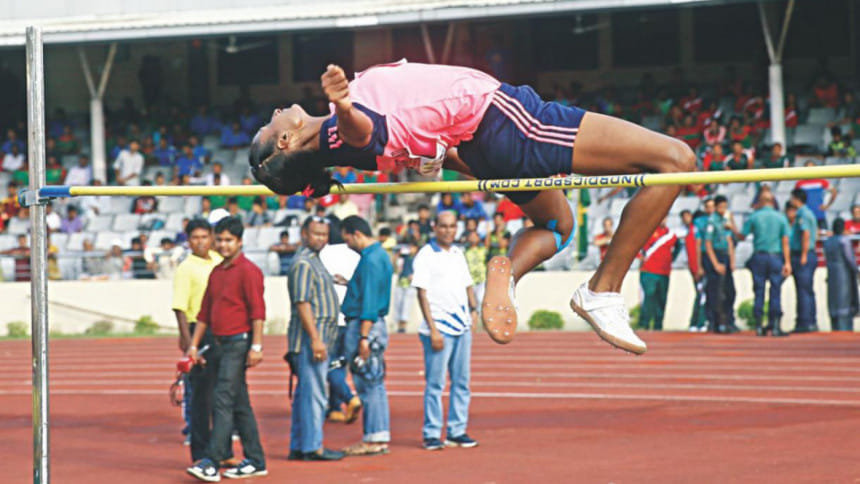
"With the players that do participate nationally, most of them tend to come from families that are needy, even then only participating till the ages of seventeen or eighteen, after which they are sent off to get married," says Raschida Afzalun Nessa.
Md. Nasirullah adds, "It's just harder, under the pressure of finances and then the constantly ticking clock, for these girls that get married off [due to family pressure], before reaching their potential."
According to most players and coaches, the culture and its problems are a big factor that play into the lives of these players that come from the rural areas.
Maryam Noor Yunus, former national handball and volleyball player and the acting volleyball coach for Stride International School, talks about how and why this may be. "Countless times, parents have come to me complaining about the issue of looks. The complexion of the girls are being ruined, or how they are no longer the perfect example of femininity. These are mindsets we have to get rid of, in order to help increase the number of girls that play," she says.
After having to face the struggles of dealing with family, and balancing education and sports, girls then have to face the daily issues of merely being a girl and playing in public spaces. Harassment is a crucial factor that plays in both the reason behind why families don't want to be supportive as well as the reason behind why girls don't want to participate. After all, who would want to knowingly put these girls in the way of harassment or danger just for sake of sports?
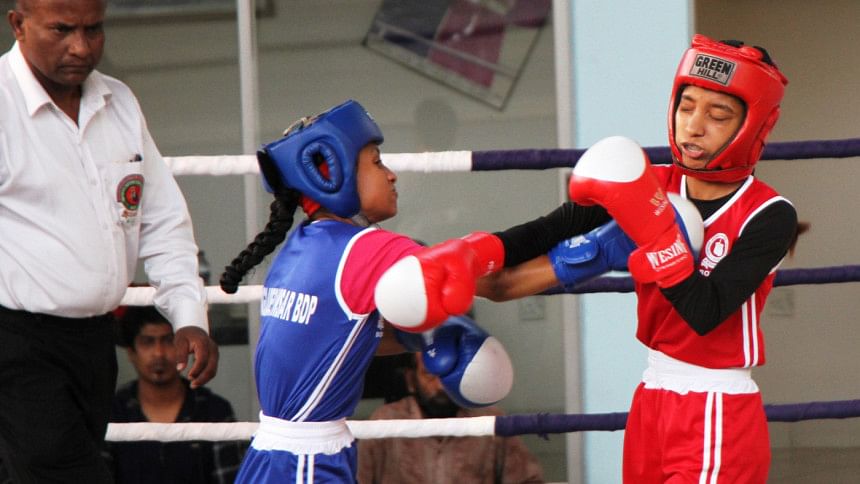
"Openly practicing is a big problem. I myself don't feel comfortable leaving the girls to play in public because of the nasty comments men can make and the incessant staring that can make a girl feel uncomfortable. After all, these girls play to represent our county and if they cannot find a decent place to play, why would they possibly want to play?" asks Md. Nasirullah.
"I have had to face a lot of problems when I was a player myself. Men can make women feel very unsafe when they are playing because of the attire or even the simple fact that they are moving about which they think is plain wrong," adds Maryam Noor Yunus.
One of the more significant issues, to most professional players, is the wage gap. Hasina Begum Hasi comments, "It's difficult to afford to play at this point. Many a times, women don't receive the same financial support as men do. We have trouble getting sponsors for our teams and it's turned out to be a struggle just to want to play for our county and our national teams."
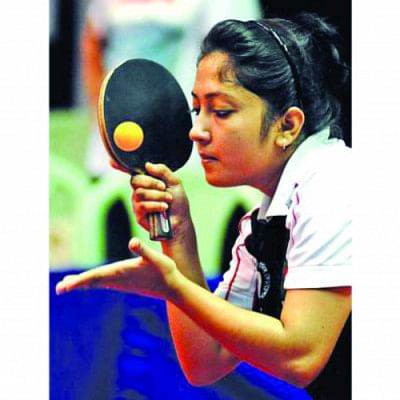
Not only is this a problem for the players who are trying to make a living out of this sport but also to those that are students, trying to balance both their stressful lives alongside each other. "There's a rather large gap in the prize money too. Most of the times, we have received less than what the boys have which can be demotivating because we are working just as hard," says Esrat Jahan Nahima.
With all these extra hurdles set in their way, girls are bound to be affected. After all, years of negativity and the constant reinforcement of the idea that 'female is the weaker gender' at every level of society can only do severe harm.
"It really affects their confidence," says Razi Uddin Ahmed. "It's become increasingly difficult to find girls to play in the teams for many reasons. And for the girls that do play, we tend to find that at times, they're not as confident as a sportsperson should be, because of the negative behaviour they constantly have to face."
It becomes very difficult for girls to live in such a world and Razi believes that it has to stop somewhere. He believes that until things get better, it falls under the responsibility of the boys to try and help support the girls.
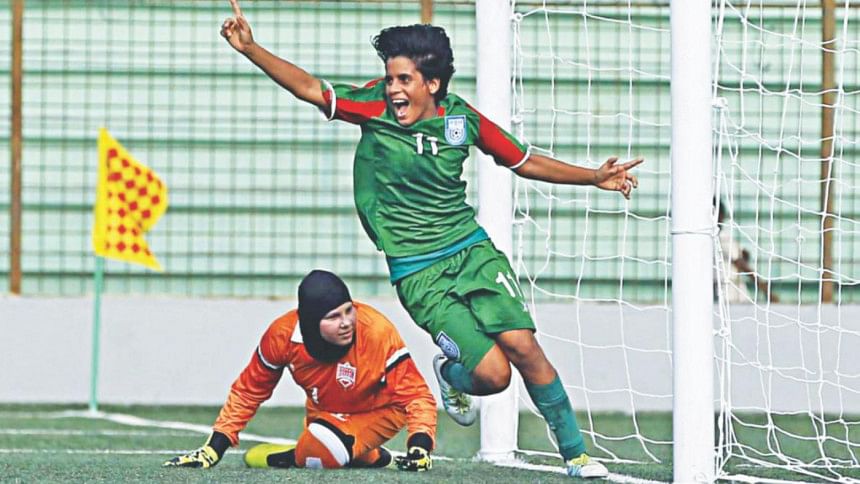
"They have a role to play in their support. They have to try and encourage these girls to play. If we can just show some positivity or create a safer environment for these girls, I guarantee a spike in the number of girls that interested in playing sports," he says.
"Make sports for girls more accessible," says Md. Nasirullah, "Lots of schools don't have fields. However, the schools that do have them, boys tend to use them more than the girls because of the fewer numbers."
Hasina Begum Hasi believes we should make inclusion of women in sports somewhat compulsory, because if not for anything, it is good for health. She believes sports plays a huge role in character building and girls should have this exposure.
We have years of damage that has to be undone and we can't expect this to be done so easily. But what we can do is be compassionate and understanding towards the situation that these girls are stuck in. We can work towards a world that we would want our children to grow up in and although it doesn't happen overnight, we have to start somewhere.
Syeda Erum Noor is dangerously oblivious and has no sense of time. Send help at [email protected]

 For all latest news, follow The Daily Star's Google News channel.
For all latest news, follow The Daily Star's Google News channel. 



Comments